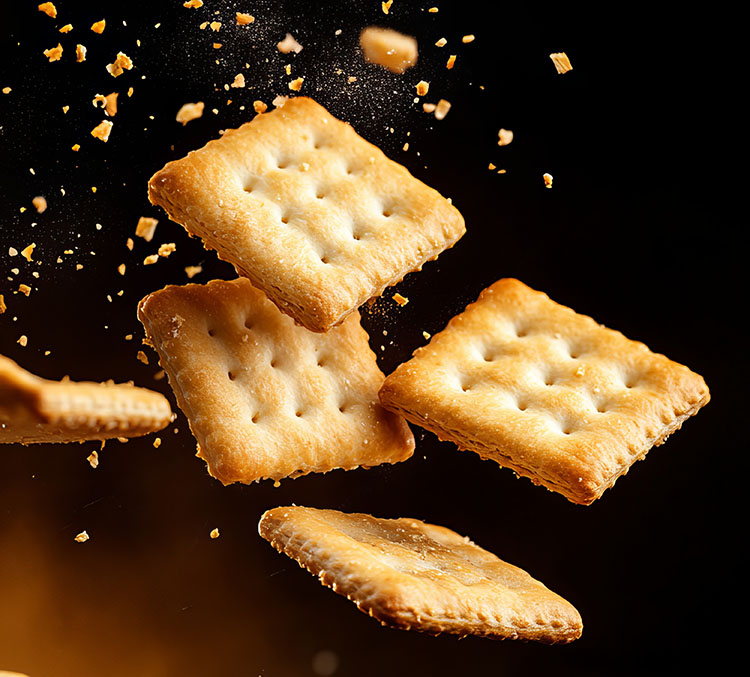
Two-stage mixing takes center stage
Two-stage batch mixing brings multiple advantages to industrial-scale baking. Two-stage batch mixing is especially suited to long-fermentation doughs, where structure and flavor are needed.
Two-stage batch mixing brings multiple advantages to industrial-scale baking. Two-stage batch mixing is especially suited to long-fermentation doughs, where structure and flavor are needed.
As flatbreads grew to become a valued staple worldwide, technology has provided answers to all its production challenges, to match traditional handcrafting techniques.
Chip Czulada embarked on a new role as the President of Reading Bakery Systems (RBS) at the beginning of 2024. He shares with Baking+Biscuit International magazine his view on the first six months at the helm of the company where he has been working for over 20 years.
Product waste in industrial bakeries can arise from several factors, each contributing to the overall inefficiency of the production process. Understanding these causes is crucial for developing strategies to mitigate waste.
There is a clear trend for bakeries worldwide to seek a sustainable and efficient energy source. Electric ovens are an emerging favorite on this path, but companies are seeking the flexibility to invest in gas ovens now, with the option to convert to electric in the future.
Fully automating kneading and mixing is an ambitious endeavor, given the complexity of the process, and the diversity of raw ingredients.
The automated line designed by AMF Tromp can flexibly support a wide range of pies, either savory or sweet, in a baking tray, in foils, or in paper cups. They can bake the pie shells only, pies with the top opened or closed and pies with or without a lattice decoration. For (pre-)baking the pies, AMF recommends a Den Boer Multibake tunnel oven with impingement heating or a direct-fired system.
Making its debut on the best stage for a first impression, at iba, the new, compact IMPRESSA bread line developed by FRITSCH for industrial production manages to save 20% of the floor space – about 5 m. This was accomplished, in part, by new sheeting technology incorporated in the revised Soft Dough Sheeter (SDS) and the new Soft Dough Roller (SDR).
The stress-free sheeting technology developed by AMF Tromp is at the heart of the processing line for any artisan bread product. The technology was developed around maintaining the quality and integrity of the traditional craft.
The conversation around increasing manufacturing sustainability will unavoidably start with analyzing ovens, for any baking operation. Visible results are a necessity.
Royal Smilde is known for its rich diversity of sweet and savory baked creations. Either sold under its own labels, through collaborations, or as private labels, the products made by the Dutch bakery are in growing demand worldwide. A very flexible production line helped them increase production volumes, built by AMF Bakery Systems (Tromp). Particular care was given to automating apple turnover production, namely – dough folding into a triangle.
This increasing interest in better-for-you foods continues to fuel product innovation, including in the sweet bakery market.

